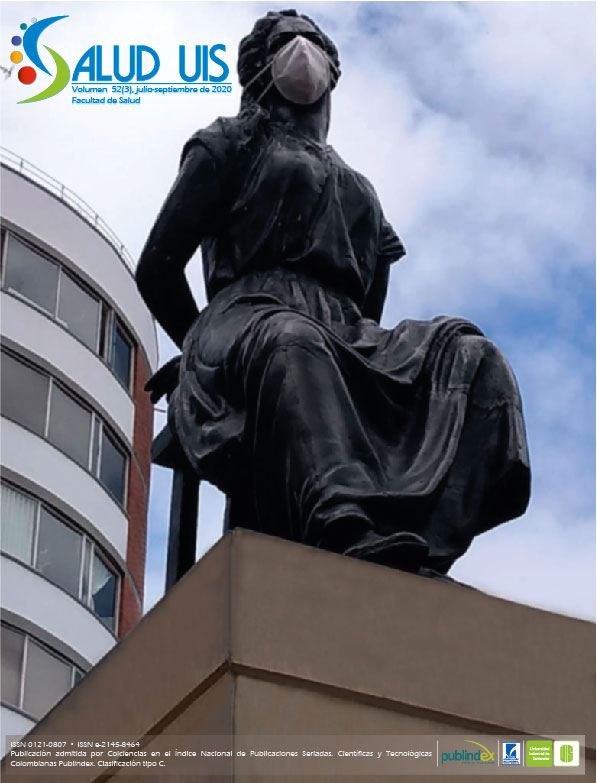Abstract
Within six months only of its existence as result of the ongoing pandemic of COVID-19 caused by the SARSCoV2, various safety measures have been applied in order to offer both protection and attention to the worldwide population. Healthcare professionals have been making great efforts to fight the disease on a hospital care level but paradoxically, acts of aggressive discrimination have been presented towards the health personnel, which mainly include: denying services, threats, and physical damage as well as patrimonial. This paper’s purpose is to describe some of the elements that help understand the mass social discriminative behaviour showing up towards healthcare workers. Healthcare personnel and general population’s mental health states during this pandemic are both described, as well as background checks of aggression towards healthcare workers predating the present pandemic, allowing a bigger picture to be examined, with the intention of establishing new general guidelines to prevent future acts of discrimination.
References
2. Shigemura J, Ursano RJ, Morganstein JC, Kurosawa M, Benedek DM. Public responses to the novel 2019 coronavirus (2019-nCoV) in Japan: mental health consequences and target populations. Psychiatry Clin Neurosci. 2020; 74(4): 281-282. doi: 10.1111/pcn.12988
3. Wang C, Pan R, Wan X, Tan Y, Xu L, Ho CS, et al. Immediate Psychological Responses and associated factors during the initial stage of the 2019 Coronavirus Disease (COVID-19) Epidemic among the general population in China. Int J Environ Res Public Health. 2020; 17(5):1729. doi:10.3390/ijerph17051729
4. Brooks SK, Webster RK, Smith LE, Woodland L, Wessely S, Greenberg N, Rubin GJ. The psychological impact of quarantine and how to reduce it: rapid review of the evidence. Lancet. 2020;
395(10227): 912-920. doi: https://doi.org/10.1016/s0140-6736(20)30460-8
5. Xiang YT, Yang Y, Li W, Zhang L, Zhang Q, Cheung T, et al. Timely mental health care for the 2019 novel coronavirus outbreak is urgently needed. Lancet Psychiatry. 2020; 7(3): 228-229. doi: https://doi.org/10.1016/S2215-0366(20)30046-8
6. Duan L, Zhu G. Psychological interventions for people affected by the COVID-19 epidemic. Lancet Psychiatry. 2020; 7(4): 300-302. doi: 10.1016/S2215-0366(20)30073-0
7. Zhang W, Wang K, Yin L, Zhao W, Xue Q, Peng M, et al. Mental Health and Psychosocial Problems of Medical Health Workers during the COVID-19 Epidemic in China. Psychother Psychosom. 2020; 1-9. doi:10.1159/000507639
8. Cao J, Wei J, Zhu H, Duan Y, Geng W, Hong X, et al. A Study of Basic Needs and Psychological Wellbeing of Medical Workers in the Fever Clinic of a Tertiary General Hospital in Beijing during the COVID-19 Outbreak. Psychotherapy and Psychosomatics. 2020; 1-3. doi: 10.1159/000507453
9. Kuhen BM. Violence in health care settings on rise. JAMA. 2010; 304 (5): 511-512.
10. Ashton RA, Morris L, Smith I. A qualitative meta-synthesis of emergency department staff experiences of violence and aggression. Int Emerg Nurs. 2017; 39, 13-19. https://doi.org/10.1016/j.ienj.2017.12.004
11. Bahji A, Altomare J. Prevalence of intimidation, harassment, and discrimination among resident physicians: a systematic review and meta-analysis. Can Med Educ J. 2020; 11(1): 97-123. doi: 10.36834/cmej.57019
12. De Sio S, Cedrone F, Buomprisco G, Perri R, Nieto HA, Mucci N, et al. Bullying at work and work related stress in healthcare workers: a cross sectional study. Annali di Igiene. 2020; 32 (2): 109-116. doi: 10.7416/ai.2020.2335
13. Nelson R. Tackling violence against health-care workers. Lancet. 2014; 383(9926): 1373-1374. doi: 10.1016/s0140-6736(14)60658-9
14. Ren SY, Gao RD, Chen YL. Fear can be more harmful than the severe acute respiratory syndrome coronavirus 2 in controlling the corona virus disease 2019 epidemic. World J Clin Cases. 2020; 8(4): 652-657. doi: doi: 10.12998/wjcc.v8.i4.652
15. World Health Organization Director-General. WHO Director-General’s remarks at the media briefing on COVID-2019 outbreak on 14 February 2020. https://www.who.int/dg/speeches/detail/whodirector-general-s-remarks-at-the-media-briefingon-covid-2019-outbreak-on-14-february-2020
16. Organización Panamericana de la Salud, Organización Mundial de la Salud (2020). Consideraciones psicosociales y de salud mentaldurante el brote de COVID-19. Comunicado del 12 de marzo del 2020.
Se autoriza la reproducción total o parcial de la obra para fines educativos, siempre y cuando se cite la fuente.
Esta obra está bajo una Licencia Creative Commons Atribución 4.0 Pública Internacional.

